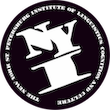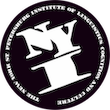
Seminar: Cult I: Afrikaaps Linguistics in South Africa: from slavery to decolonial futures
Quentin Williams (University of the Western Cape)
Afrikaaps (also known as Kaaps) is one of the oldest ‘languages’ in South Africa. From colonialism to post-apartheid, activists, academics, artists, authors continue to campaign for the empowerment of Afrikaaps speakers in schools, universities, social life, politics, and the economy of South Africa. Afrikaaps is also an important linguistic resource in the Western Cape and beyond. In recent years, there has been an increased focus and production of research and creative writing on: (1) The history of formation (creolisation) (2) The social life of Afrikaaps (3) The linguistics of Afrikaaps; (4) The unification of the writing system; (5) The educational advancement of Afrikaaps for academic literacy in basic and higher education; and (6) The political, media and economic benefits of Afrikaaps. Today, Afrikaaps speakers can watch film and listen to music in Afrikaaps. They can read newspapers and parts of the Bible (partially) in Afrikaaps. And while the first full dictionary is currently being developed and bilingual learning materials for the basic education system, there has at the same time been a burst in linguistic science research into Afrikaaps as a language of teaching and learning or a subject at school and university level, the development of terminology (word) banks, the grammar and orthography of Afrikaaps, studies on the creation and performance of popular cultural genres, and the translingual study and analyses of racialized identities practice by Afrikaaps and non-Afrikaaps speakers. The aim of this lecture series is to introduce Afrikaaps linguistics with a focus on the (socio)linguistic development from the age of colonialism unto present day post-apartheid South Africa. Bringing together archival, textual and interactional data, students will be introduced to the historical formation of Afrikaaps as a slave lingua franca, its development as a language of writing, and contemporary debates about how we should write in the language, how it should be used in the education system, the language policy and planning pitfalls, and how it is being developed into a dictionary in post-apartheid, decolonial South Africa. Lecture 1: “My goeden vrind”: Slavery, Colonialism and the Creolization of Afrikaaps as a ‘Slave Lingua Franca’, 1652-1799 Lecture 2: The making of an In-Between Language, 1800-1939: A Missionary Linguist and Afrikaaps Street Languaging, Lecture 3: [Untitled] Afrikaaps, 1940 to 1989: Turbulence, Resistance and Protest Lecture 4: The Miseducation of Afrikaaps speakers in Post-apartheid South Africa Lecture 5: Debating Afrikaaps linguistics and its decolonial future, Part I: language coding and how to write in a “Historically Marginalized Language” Lecture 6: Debating Afrikaaps linguistics and its decolonial future, Part II: the limits of language policy and planning for a “Historically Marginalized Language”

